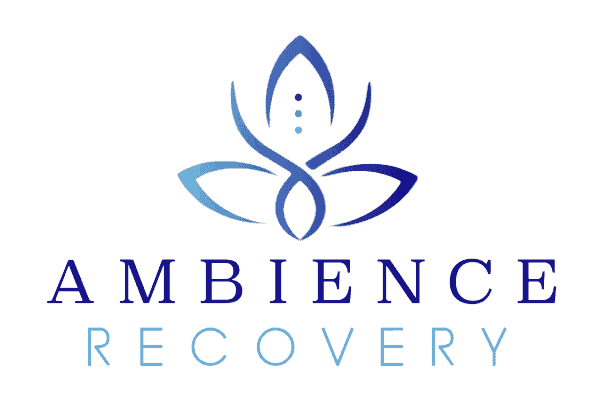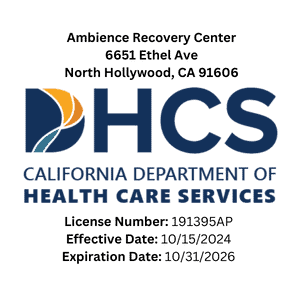Key Takeaways
- Detox duration varies based on the substance, severity of addiction, and overall health.
- Withdrawal symptoms can range from mild to severe and require medical supervision.
- Professional detox programs provide safety, comfort, and preparation for long-term recovery.
Introduction
Detox is often the first step in breaking free from drug and alcohol addiction. But many people wonder, “How long does detox take?”
The answer depends on several factors. The substance used, the length of time someone has been using, and overall health all play a role. Understanding the detox process can help prepare for this critical step.
This article will explain how long detox typically takes, the factors that affect it, and why professional detox programs are the safest option.
What is Detox?
Detox, short for detoxification, is the process of removing drugs or alcohol from the body. It allows the body to adjust to functioning without substances.
For someone addicted to drugs or alcohol, stopping use can trigger withdrawal symptoms. These symptoms happen because the body has become dependent on the substance.
A supervised detox program helps manage these symptoms safely and prepares individuals for long-term recovery.
Factors That Influence Detox Duration
The length of detox can vary from person to person. Here are the main factors that impact how long it takes:
1. Type of Substance Being Detoxed
Different substances leave the body at different rates. For example:
- Alcohol typically clears the body in a few days.
- Opioids may take longer, depending on the drug used.
- Stimulants like methamphetamine and cocaine have shorter detox timelines.
2. Severity of Addiction
The longer someone has used a substance and the higher the doses, the longer detox may take.
3. Individual Health
Age, metabolism, weight, and overall physical health play a significant role. Someone in good health may detox faster.
4. Type of Detox Program
Medical detox programs provide medications and support to ease withdrawal symptoms. This can make the detox process smoother and safer.
Drug and Alcohol Detox Timelines
The length of detox varies based on the substance. Here’s a breakdown of typical detox timelines for common drugs and alcohol:
Alcohol Detox Timeline
- 6–12 Hours: Mild symptoms begin, like headaches, anxiety, and nausea.
- 24–48 Hours: Symptoms peak, including sweating, tremors, and trouble sleeping.
- 3–7 Days: Severe symptoms, such as hallucinations or seizures, may occur but gradually improve.
Opioid Detox Timeline
- 8–24 Hours: Early symptoms start, like muscle aches, sweating, and anxiety.
- 3–5 Days: Symptoms peak, with vomiting, diarrhea, and intense cravings.
- 1–2 Weeks: Symptoms slowly ease, though fatigue and cravings may linger.
Stimulant Detox Timeline (Cocaine, Meth)
- 24–48 Hours: Early symptoms appear, such as depression, fatigue, and irritability.
- 3–7 Days: Emotional symptoms peak, with strong cravings and mood swings.
- 1–2 Weeks: Symptoms improve, but depression and low energy may persist.
Benzodiazepine Detox Timeline (Valium, Xanax)
- 1–4 Days: Symptoms begin, including anxiety, insomnia, and headaches.
- 5–14 Days: Severe symptoms like seizures, confusion, and tremors may occur.
- 2–4 Weeks: Symptoms improve gradually with medical support.
The Importance of Professional Detox Programs
Detoxing at home may seem like an option, but it can be dangerous. Professional detox programs provide medical care to ensure safety and comfort.
Benefits of Medical Detoxification
- 24/7 Supervision: Healthcare professionals monitor symptoms and offer immediate care for severe withdrawal.
- Medications for Symptom Relief: Medications can reduce pain, anxiety, and cravings during detox.
- Emotional Support: Counseling helps individuals cope with stress and uncertainty during detox.
Professional detox programs create a stable and supportive environment essential for beginning the recovery process.
What to Expect During the Addiction Recovery Detox Process
Detox typically follows three main stages:
1. Assessment
Doctors assess substance use history, overall health, and withdrawal risks. This helps create a personalized detox plan.
2. Stabilization
During this phase, medical staff manage withdrawal symptoms with medications and care. The goal is to keep the individual as comfortable and safe as possible.
3. Transition to Treatment
Detox is only the first step. After completing detox, individuals are encouraged to transition to an addiction treatment program. This phase focuses on long-term recovery and preventing relapse.
Common Withdrawal Symptoms During Drug or Alcohol Addiction Rehab
The symptoms of withdrawal can vary depending on the substance and severity of the addiction.
Mild Symptoms
- Headaches
- Sweating
- Anxiety
Moderate Symptoms
- Nausea and vomiting
- Trouble sleeping
- Mood swings
Severe Symptoms
- Seizures
- Hallucinations
- High blood pressure
Having medical support during detox ensures that these symptoms are managed safely.
Why Detox Alone Isn’t Enough
Detox removes drugs or alcohol from the body, but it doesn’t address the root causes of addiction. To achieve long-term recovery, individuals need comprehensive treatment.
Addiction treatment programs include:
- Counseling and Therapy: Individual and group sessions help address the emotional and psychological aspects of addiction.
- Support Groups: Programs like 12-step meetings provide ongoing peer support.
- Aftercare Plans: Strategies to prevent relapse and maintain sobriety over the long term.
With professional support, individuals can build the skills needed to live a healthy, addiction-free life.
Conclusion
Detox is the first step toward breaking free from addiction. The process varies depending on the substance, length of use, and individual health. Withdrawal symptoms can be difficult, but professional detox programs ensure safety and comfort during this time.
If you or a loved one is struggling with addiction, help is available. Ambience Recovery provides expert detox and treatment services to guide you toward recovery. Call us at 866-721-7470 to take the first step toward a healthier, happier life.
FAQs About How Long Does a Detox Program Take For Drug or Alcohol Abuse
How long does detox take?
Detox typically takes anywhere from a few days to a few weeks, depending on the substance and individual factors.
What are the symptoms of detox?
Common symptoms include headaches, nausea, sweating, anxiety, and, in severe cases, seizures or hallucinations.
Can I detox at home?
Detoxing at home can be risky. Medical detox programs provide a safe and supervised environment for managing withdrawal symptoms.
What happens after detox?
After detox, individuals transition into addiction treatment programs to address the root causes of addiction and build tools for long-term recovery.
Why is medical detox necessary?
Medical detox ensures safety, reduces withdrawal discomfort, and offers support for a smooth start to recovery.
What’s the difference between alcohol withdrawal symptoms and drug withdrawal symptoms?
Alcohol withdrawal symptoms typically include tremors, sweating, anxiety, and in severe cases, seizures or delirium tremens. In contrast, drug withdrawal symptoms vary depending on the substance but may include nausea, muscle pain, insomnia, or intense cravings. Both involve physical and psychological discomfort, but the severity and specific symptoms depend on the substance used.
Does the severity of the addiction affect how long it takes for the alcohol or drug detox program to last?
Yes, the severity of the addiction, including how long and how heavily a person used the substance, directly impacts the length of the detox program. Severe addictions may require a longer, medically supervised detox to ensure safety and manage intense withdrawal symptoms.
What types of drugs require supervised detox for severe withdrawal symptoms?
Drugs like opioids, benzodiazepines, alcohol, and stimulants often require supervised detox due to the risk of severe withdrawal symptoms, including seizures, heart complications, or extreme psychological distress. Medical supervision helps ensure a safer and more comfortable withdrawal process.
How long does alcohol detoxification take at a detox facility?
Alcohol detoxification typically takes 3 to 7 days, depending on the individual’s level of dependence, health condition, and withdrawal severity. Medical monitoring during this period ensures safety and symptom management.
Are cravings addressed in drug or alcohol detox programs?
Yes, detox programs often include medications, therapies, and support systems to help manage cravings and prepare individuals for ongoing treatment. Cravings are a key focus as they can lead to relapse if not properly addressed.
What is the most dangerous drug to detox off of where medical detox is crucial?
Benzodiazepines and alcohol are considered the most dangerous substances to detox from, as withdrawal can cause seizures, hallucinations, and life-threatening complications like delirium tremens. Opioids also require a medical detox to manage severe withdrawal symptoms and reduce relapse risk.
What happens on day 3 of detox?
Day 3 of detox is often when withdrawal symptoms peak, depending on the substance. Symptoms such as nausea, anxiety, sweating, insomnia, or intense cravings may intensify, making medical supervision and support critical for safety and comfort.
How can I speed up drug elimination?
Staying hydrated, exercising regularly, eating nutritious foods, and getting plenty of rest can support your body’s natural detoxification processes. However, attempting to “speed up” drug elimination without medical supervision can be dangerous, so professional detox programs are recommended for safety.
Resources
https://www.webmd.com/mental-health/addiction/addiction-detox-what-to-know
https://campuspress.yale.edu/ledger/how-does-drug-detox-actually-work/
https://www.va.gov/health-care/health-needs-conditions/substance-use-problems/
Katie is a Licensed Clinical Social Worker who has worked as a primary therapist, supervisor, and now clinical director for SUD/MH treatment centers for the past 12 years. Katie is trained in Brainspotting, EMDR, Internal Family Systems and Dialectical Behavior Therapy and is passionate about treating substance use disorders, trauma and grief.






